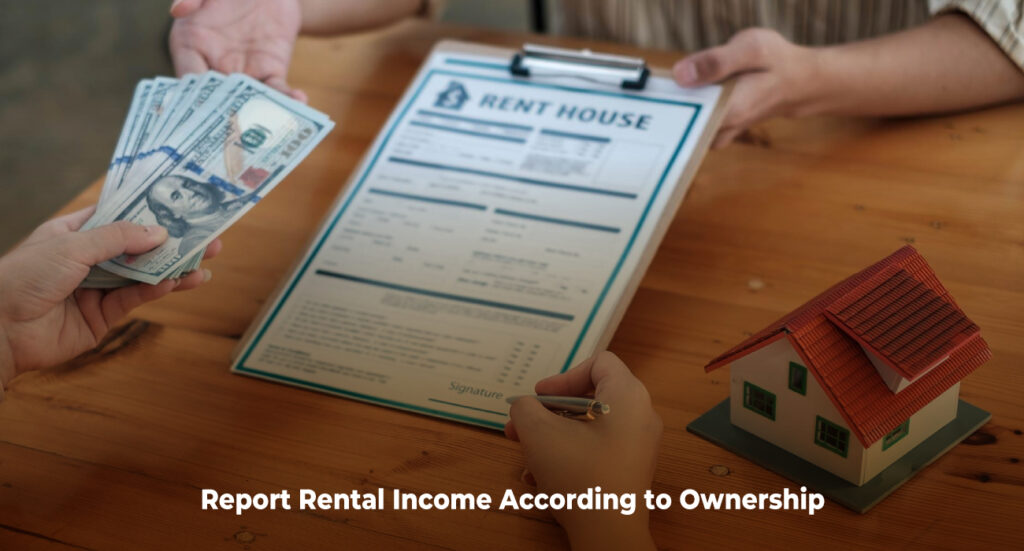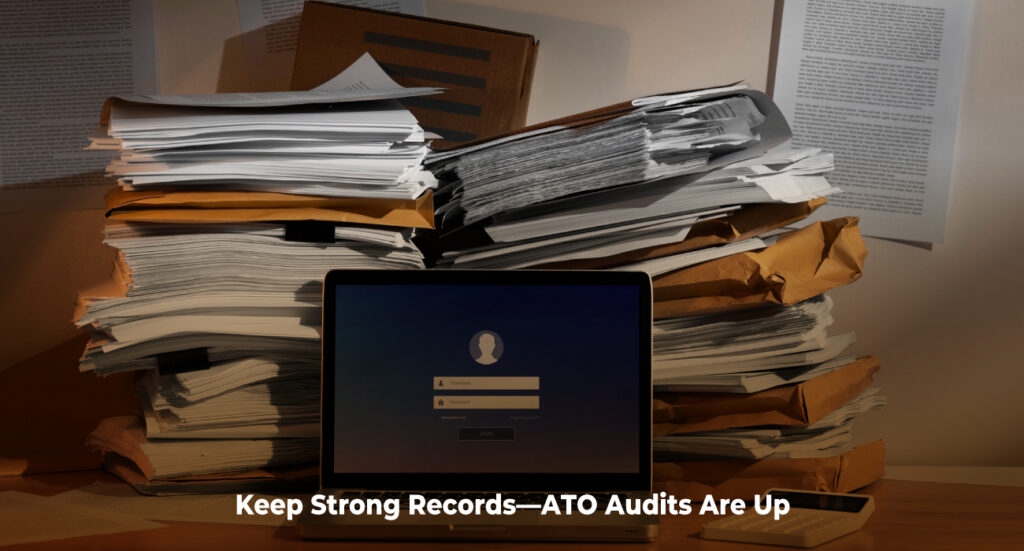2025 Tax Planning Toolkits for Property Investors
As June 2025 draws near, property investors are facing a very different landscape compared to this time last year. Inflation has cooled—dropping to 2.4%—and the Reserve Bank is now leaning towards interest rate cuts to stimulate the economy. Meanwhile, global events like Donald Trump’s reintroduction of tariffs are starting to hit home, with Australia expected to feel the impact across trade and investment markets.
Closer to home, Labor’s re-election signals policy stability, but the economic environment remains unpredictable. While the cost-of-living pressure has eased slightly, mortgage stress, rental reforms, and tightening tax scrutiny continue to challenge investors.
At Investax Group, we believe these shifting conditions call for sharper, more informed tax planning. This EOFY toolkit for property investors is your guide to navigating 2025 with confidence—covering key strategies like depreciation claims, interest deductibility, negative gearing, and ownership structuring.
Whether you own one property or a growing portfolio, our goal is simple: help you protect your cash flow, reduce tax, and make smarter decisions—now and for the years ahead.

Report Rental Income According to Ownership
In 2025, the ATO continues to focus on rental income reporting errors—particularly where legal ownership doesn’t match how income is declared. One of the most common mistakes? Claiming 100% of the rental income when you’re not the sole legal owner.
This often happens in joint ownership arrangements—whether between parents and children, siblings, or business partners. It might feel logical to report all the income if you’re the one managing the property and covering the expenses. But from a tax perspective, that’s incorrect. The ATO requires income and expenses to be split according to the legal ownership recorded on the title.
Tip for 2025: With property co-ownership arrangements on the rise and data-matching technology improving, getting this right isn’t just best practice—it’s essential for avoiding ATO scrutiny.

Claim Expenses When Property Is Vacant
You can still claim many expenses even if your investment property wasn’t rented during part of the year—as long as it was genuinely available for rent. That means actively advertising the property at market rates with no unreasonable restrictions on tenants.
Eligible ongoing expenses include interest on loans, council rates, insurance, land tax, body corporate fees, and depreciation. These don’t need to be reduced just because the property was temporarily vacant.
Expenses like advertising for tenants, agent commissions, tenant-related repairs, and rubbish removal are fully deductible, as they directly relate to earning rental income.
Tip for 2025: Don’t miss deductions just because your property didn’t earn rent—ATO allows full claims if it was truly available for lease.

Keep Strong Records—ATO Audits Are Up
In 2025, we’ve seen a spike in ATO audits targeting 2024 tax returns—especially for property investors. Even legitimate deductions can be denied if you can’t back them up with records.
Take loan interest, for example. It’s usually deductible if the property is rented, but if you can’t produce bank statements during a review—especially after refinancing—your claim may be rejected.
Always keep invoices, statements, and receipts for at least five years from the time you lodge your return. Good records protect you if the ATO comes knocking.
Tip for 2025: No records = no deduction, even if the expense is 100% valid.

Know What You Can (and Can’t) Claim
One of the most common investor questions: “We just bought a property—what can we claim?”
In short, most expenses related to a rented or genuinely available property are tax deductible—advertising for tenants, loan interest, council rates, insurance, land tax, agent fees, body corporate fees, and depreciation. Even the cost of a quantity surveyor for a depreciation schedule is deductible.
However, purchase costs like stamp duty, buyer’s agent and conveyancer fees aren’t. Nor are capital improvements like a new roof or patio—these must be claimed gradually through depreciation.
To claim anything, the property must be advertised for rent, and the expenses must be paid by you—not the tenant. And remember: no receipt = no deduction. Keep all invoices and records to back up your claims.
Tip for 2025: Review our latest guides on “What You Should and Shouldn’t Claim” for more detailed insights.

Claiming Interest & Borrowing Costs
Interest on loans is tax deductible only if the funds are used for an income-producing property. This includes loans for deposits, stamp duty, or legal costs tied to an investment property—even if the loan is a personal or equity loan from your home.
But beware: If you use borrowed funds for personal expenses—like buying a new home, car, or funding a holiday—the interest is not tax deductible, even if the loan is secured against your investment property. This is a common trap for investors who draw equity from their investment property and assume the interest remains deductible simply because the loan is tied to an income-producing asset.
Borrowing costs are often overlooked. These include loan setup fees, title searches, document checks, and Lenders Mortgage Insurance (LMI). If total borrowing costs exceed $100, they must be claimed over five years.
Tip for 2025: It’s the purpose of the loan—not the security—that determines deductibility. Always track how borrowed funds are used.

Prepay to Boost Deductions
Prepaid expenses aren’t just for business owners. The ATO allows individuals—including property investors—to claim deductions for prepaid expenses if they cover 12 months or less and don’t extend beyond the next financial year.
For investment properties, you can prepay items like loan interest, and insurance premiums in June to bring forward deductions into the current tax year.
Example: In 2024, Sarah faced a higher tax bill after receiving a large employee share bonus. She reduced her tax by prepaying 12 months of loan interest and landlord insurance—perfectly within ATO rules.
Tip for 2025: Prepay before 30 June to maximise deductions—especially if your income is unusually high this year.
Repairs vs Upgrades—Know the Difference
You can claim a tax deduction for repairs and maintenance that restore your investment property to its original condition—like fixing leaks, repainting, unblocking drains, or replacing broken window glass.
But if you’re upgrading or improving something (like adding a new deck or replacing an entire kitchen), that’s considered capital works—and must be depreciated over time.
2025 Tip: Repairs caused by tenant wear and tear? Fully deductible. Just keep receipts and don’t confuse them with upgrades.

Hold Off on Initial Repairs
Bought a property and fixing it up right away? Be careful – repairs made before it’s rented out aren’t immediately deductible. Even if you’re just fixing existing damage (like broken windows or scuffed floors), the ATO treats these as part of your initial purchase.
Instead, they’re added to your cost base for CGT or claimed slowly through capital works deductions.
2025 Tip: If cash flow allows, delay non-urgent repairs until after the property is tenanted to claim them sooner.
Don’t Miss Depreciation
Depreciation is one of the most overlooked tax deductions for property investors—and you don’t need to spend anything upfront to claim it.
If you bought a second-hand residential property after 9 May 2017, you generally can’t claim depreciation on existing plant and equipment (like old ovens or carpets). But you can claim it on new items you install and on the building itself (Division 43).
Capital Works (Division 43) includes things like walls, floors, vanities, and built-ins—and it adds up fast. A quantity surveyor can help you unlock these deductions.
2025 Tip: Bought a second-hand property? Make sure you’re claiming Division 43—it’s often missed.
CGT Tip: It’s the Exchange Date That Counts
Thinking of selling your investment property? For capital gains tax (CGT), the exchange date—not the settlement date—triggers the tax.
Example: If you sign a contract on 28 June 2024 but settle in August, the gain still falls into the 2024 financial year.
Also, if you’re selling multiple assets, time your contracts wisely. Capital losses can only offset capital gains in the same year. If you sell a gain this year but the loss next year—you’ll miss out on using that loss to reduce your tax.
2025 Tip: Align gains and losses in the same financial year and always track exchange dates—not settlement.

Get the Ownership Structure Right—Before You Buy
One of the biggest mistakes property investors make – rushing into a purchase without getting structure advice. Changing ownership later can trigger stamp duty and capital gains tax—costly errors that could’ve been avoided with upfront planning.
Take this real-life example: A couple bought a property 50/50 at auction, planning to develop and sell. But the husband’s high income means their profits will be taxed at the top rate. Now they’re stuck with a tax bill they could’ve avoided.
The right structure—individual, trust, or company—can reduce tax, protect assets, support estate planning, and avoid future headaches. Whether you’re investing, developing, or planning long-term, speak to a property tax specialist before signing anything.
2025 Tip: Property is likely your biggest investment—structure it smartly from day one.
Final Thoughts
With 30 June fast approaching, now’s the time to get your property tax affairs in order. From claiming the right expenses to avoiding common traps around ownership, repairs, and depreciation, a few smart moves can make a big difference to your bottom line.
If you do not have an accountant who specializes in property and business tax, please consider reaching out to Investax Group. Our experts can provide invaluable guidance tailored to your specific circumstances, helping you make informed decisions that align with your long-term financial goals. Contact Investax Property Tax Specialists Group today to ensure your property investments are well-prepared for the financial year ahead.
General Advice Warning
The material on this page and on this website has been prepared for general information purposes only and not as specific advice to any particular person. Any advice contained on this page and on this website is General Advice and does not take into account any person’s particular investment objectives, financial situation and particular needs.
Before making an investment decision based on this advice you should consider, with or without the assistance of a securities adviser, whether it is appropriate to your particular investment needs, objectives and financial circumstances. In addition, the examples provided on this page and on this website are for illustrative purposes only.Although every effort has been made to verify the accuracy of the information contained on this page and on our website, Investax Group, its officers, representatives, employees and agents disclaim all liability [except for any liability which by law cannot be excluded), for any error, inaccuracy in, or omission from the information contained in this website or any loss or damage suffered by any person directly or indirectly through relying on this information.
Reference:
ATO – Genuinely Available for Rent
ATO – Prepaid Expense





